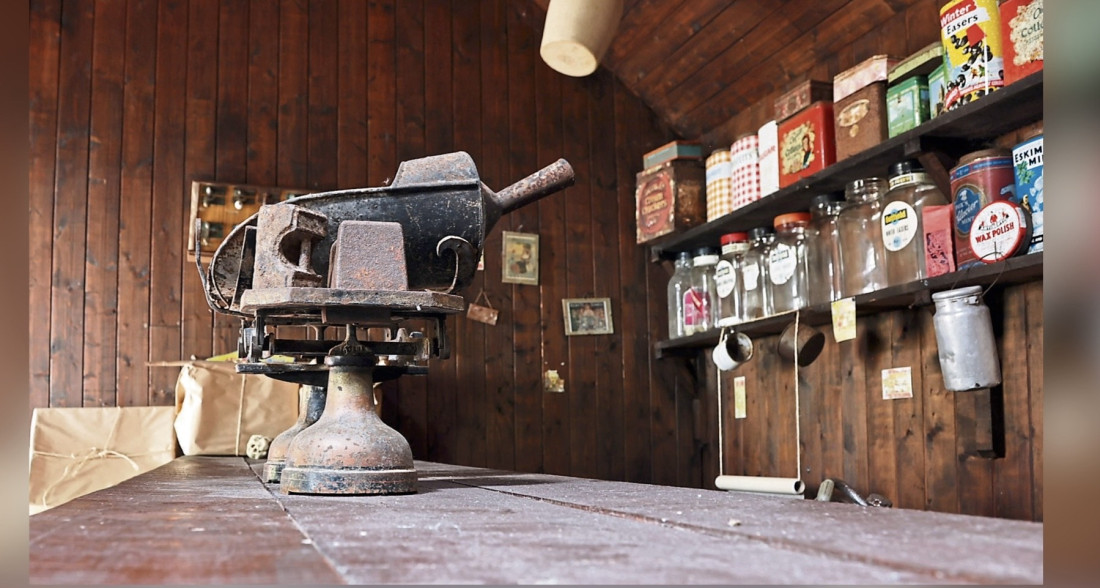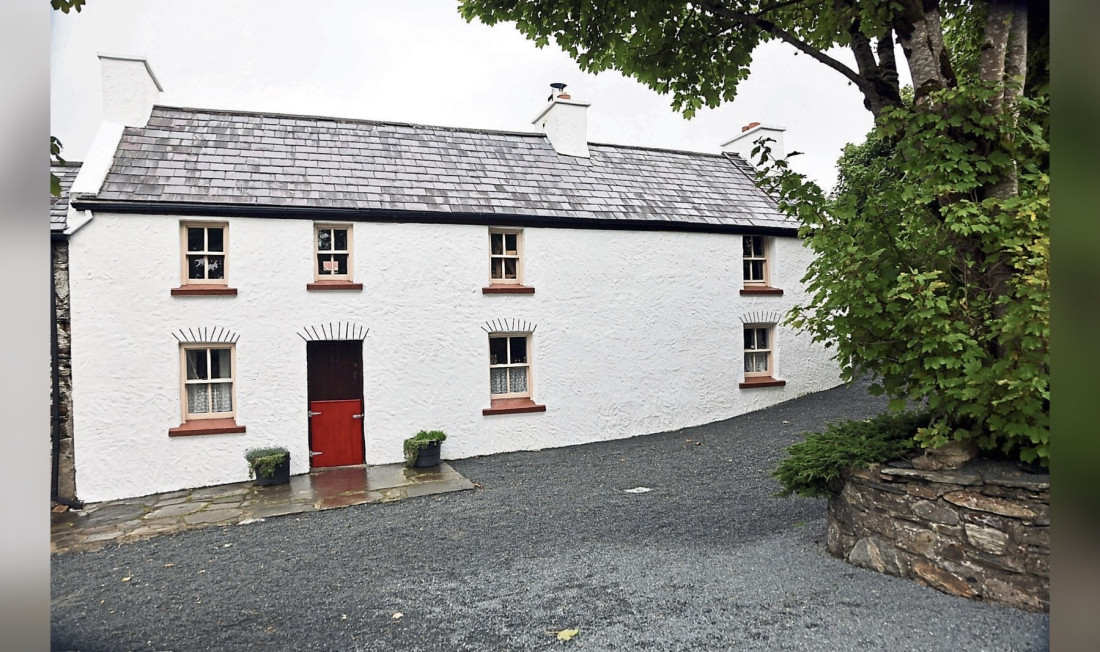
The weighing scales and counter in the old shop at Ionad Cois Locha Heritage Centre.
By Róise Collins
AFTER three long years, locals in Dunlewey were delighted to celebrate the official reopening of Ionad Cois Locha last week.
The visitor centre boasts spooky boat tours, paddle boats, a farm, a shop filled with local crafts and a fully refurbished play park as well as their anchor attraction, the weaver’s cottage.
Before stepping foot through the door of the traditional cottage visitors are transported back in time as the distinctive smell of burning turf wafts through the air.
Once inside the cosy homestead you are greeted by the warmth of the crackling fire that flickers at the foot of the old four post bed.
In a time of desperate poverty there was a strong focus on the development of the cottage industries in the rural village in an attempt to offer employment and income to those who were struggling.
Locals quickly learnt how to dye their own wool and create tweed from scratch in their own homes.
The people of Dunlewey had a great knack for the traditional craft and each weaver that became established in the village then employed a minimum of eight other women to help with the spinning, as well as local farmers who helped to rear sheep.
One of the many families who were involved in the trade was the Ferry’s, whose cottage is now at the heart of the visitor centre.
Hanging in the bedroom of their home is a beautiful tweed coat that once belonged to Henry McIlhenny. Mr McIlhenny, the last owner of Glenveagh Castle and Estate, was one of the many celebrities who visited Dunlewey to purchase tweed from the renowned weaver, Manus Ferry.
The famed weaver lived in the now immaculately preserved cottage with his brother who worked as a shepherd and his sister who ran the family shop.
But when the unmarried family members passed away there was no one left to continue to work the loom and the historic house was left lying vacant.
In the late ‘80s the community rallied together to purchase the historic homestead and turn it into a visitor centre. This was again an attempt to bring vitality to the forgotten village at the foot of Errigal, and harness some of the tourism that was passing through the Gaeltacht area.
The co-operative visitor centre is still owned by the community and continues to run as a non-profit operation, with all profit going straight back into the centre.
They recently received a Pobal grant, which is a government initiative to address disadvantaged areas. This allowed for the appointment of Beulah Croker as the new General Manager. Without this funding it was very unlikely they would have reopened.
Ms Croker started in October 2022 when the centre’s doors were closed to the public. Since the reopening last week she said it was like starting a brand new job.
“There are things I haven’t had to contend with yet rearing their heads,” she laughed.
This included managing the payroll of the 15 newly appointed staff members and a huge influx of eager visitors. Despite the hurdles, Ms Croker is delighted to have the centre full of people again. She said the centre felt deserted and spooky when they were closed.
“Several people including myself have even felt a tap on the shoulder,” she revealed.
Perhaps it was the ghost of the Green Lady who haunts the Guinness Estate, at the other side of the Poisoned Glen, staff joked.
Ms Croker thanked everyone who helped them throughout the re-opening, including the 25 members of staff and the unwaveringly supportive community.
“This year the only thing we had planned was to open our doors and try and get people coming back in. As soon as we close our doors again for the season we plan to start adding to the playground, and focus more on our natural as well as historical heritage,” she said.










